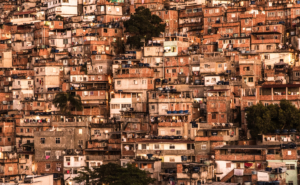The Criminalization of Poverty in Rio

Brazil boasts the fourth-highest incarceration rate in the entire world and a lot of these arrests occur in the most urban areas of the country like Rio de Janeiro and Sao Paolo. These cities happen to be centers of diversity and culture, but also areas of extreme wealth disparity. The criminalization of poverty in Rio demonstrates the general poverty-crime cycle, where greater economic disadvantage and higher rates of incarceration lead to each other.
The Case of Rafael Braga Vieria
In 2013, the case of Rafael Braga Vieria became a landmark for the government of Rio’s less-than-neutral approach to making arrests at the time filled with mass demonstrations. Vieria was a homeless street cleaner carrying cleaning supplies. The authorities only arrested Vieria out of the 300,000 protesting that night. He received a five-year sentence on the grounds that he could have used the supplies to make a molotov cocktail.
Article 3 of Brazil’s constitution protects against this sort of discrimination against poverty, but at the same time, there is legislation allowing for drug offenses to receive judgment based on personal circumstances. For example, if the suspect came from a certain background, authorities could legally assume that they intended the drugs for personal use.
Life in Favelas
Usually, the poorer people in the area, living in favelas or poor neighborhoods, receive the worst of this treatment. The residents become targets for drug trafficking as well as scapegoats for the law. Rio de Janeiro’s favelas hold upwards of 1 million that face discrimination from the general public. In reality, violence is not an inherent part of favelas. It is a result of the system that allows them to exist in a state of such neglect. All of this leads to violence within the community and violence on behalf of the state. For instance, the police killed upwards of 600 people in 2015 alone. Around 75 percent of these deaths were black men.
Such high incarceration rates because of the criminalization of poverty in Rio often have other economic effects on the people most affected. Those living in favelas, disproportionately black families, receive evictions from their homes without reason. Between 2009 and 2013, the government forced around 20,000 families out of their homes with no compensation. In addition, many low-income families felt the impact of having one person incarcerated for a long time, especially if the person was the wage-earner of the family. Not only does this criminalization of poverty in Rio make life more difficult in the moment, but it also opens the door for further turning towards crime and violence.
Today
The percentage of people living in poverty is rising after the boom of the 2016 Olympics. Unemployment has risen, as well as the other byproducts of poverty, but many organizations are working to make a difference in Rio. Habitat for Humanity has helped almost 20,000 families find houses outside of these favelas, but people can always do more. Investing in other aid organizations, especially local ones, would be necessary to improve living conditions, thereby decreasing the criminalization of poverty in Rio and Brazil as a whole.
– Anna Sarah Langlois
Photo: Flickr
